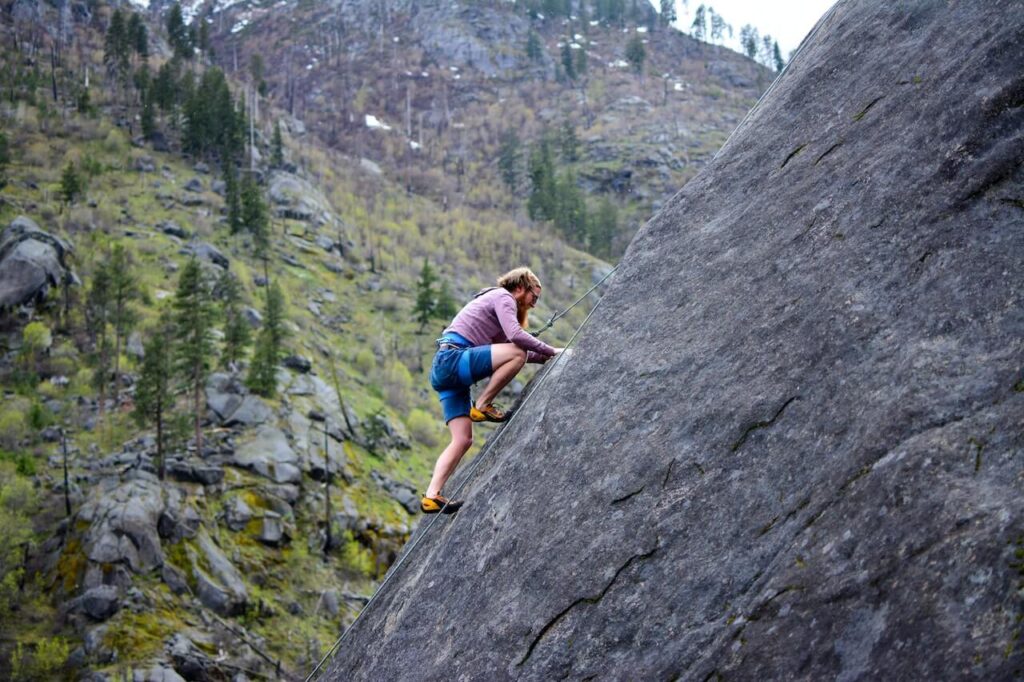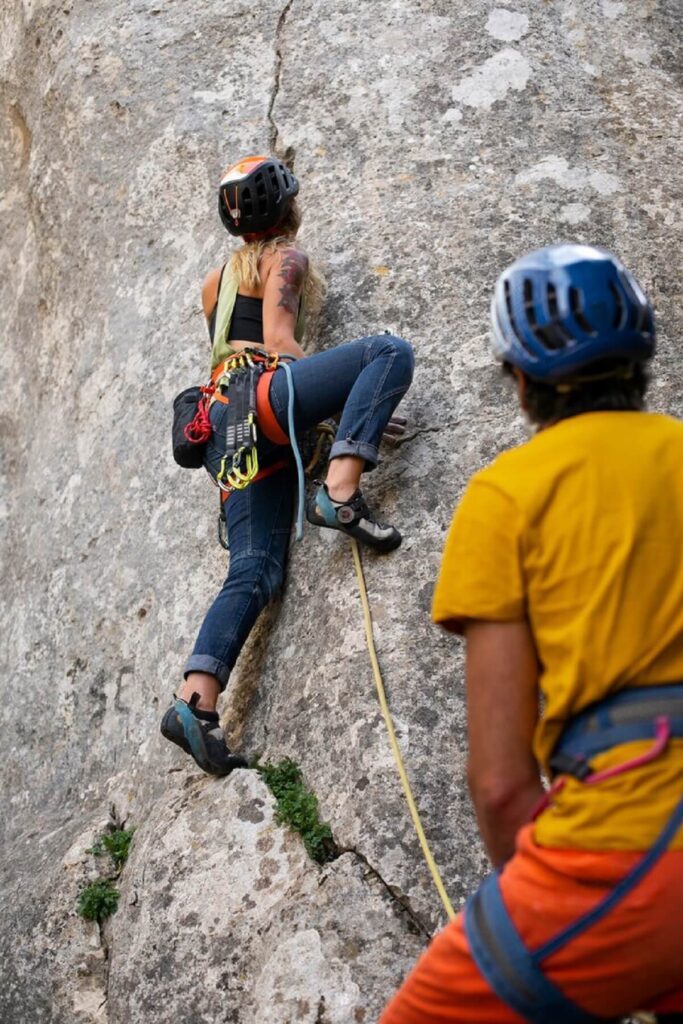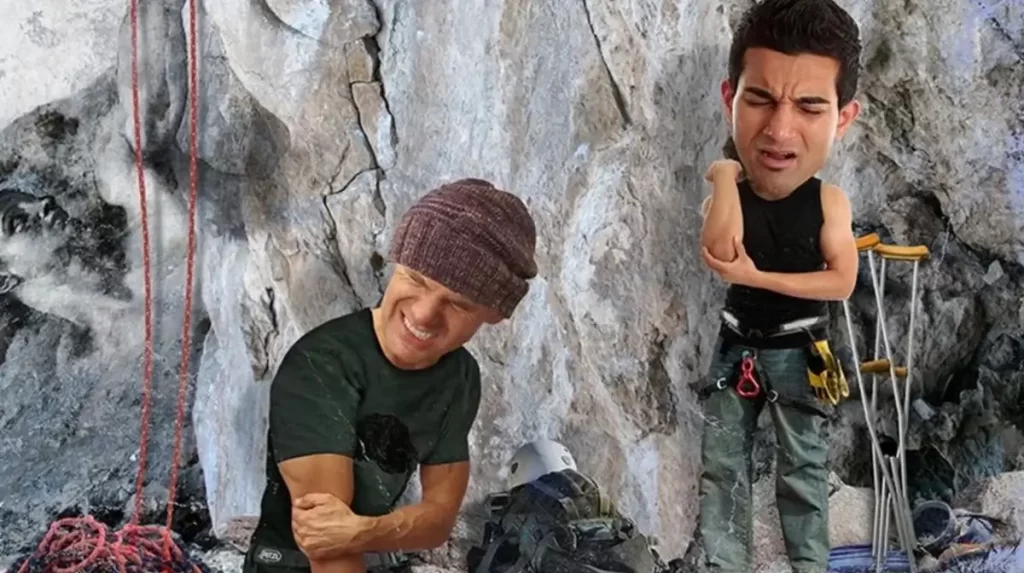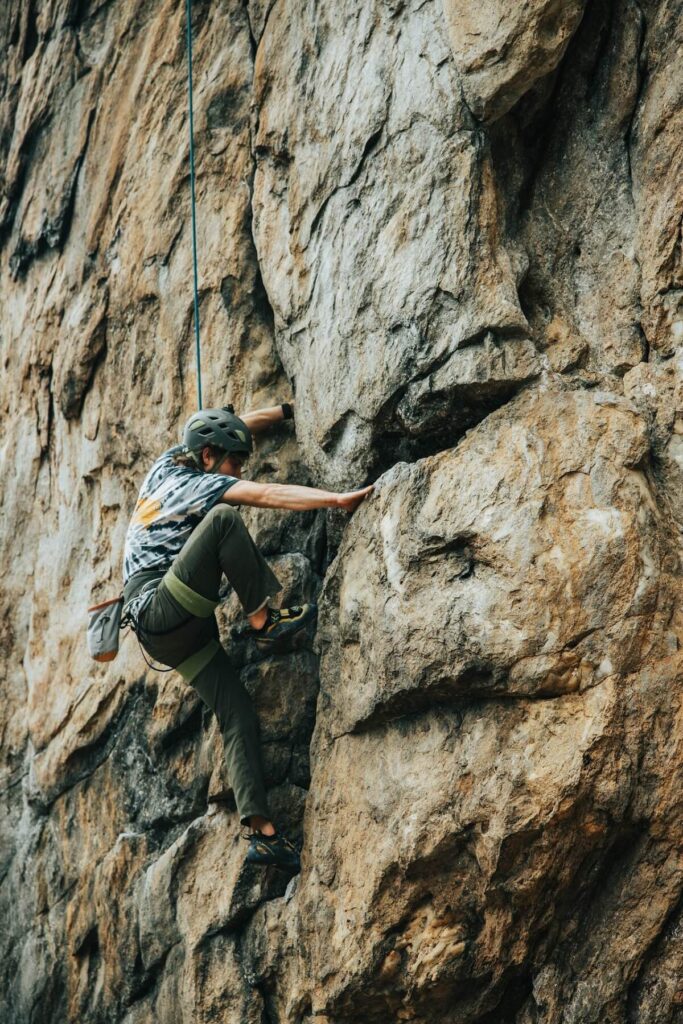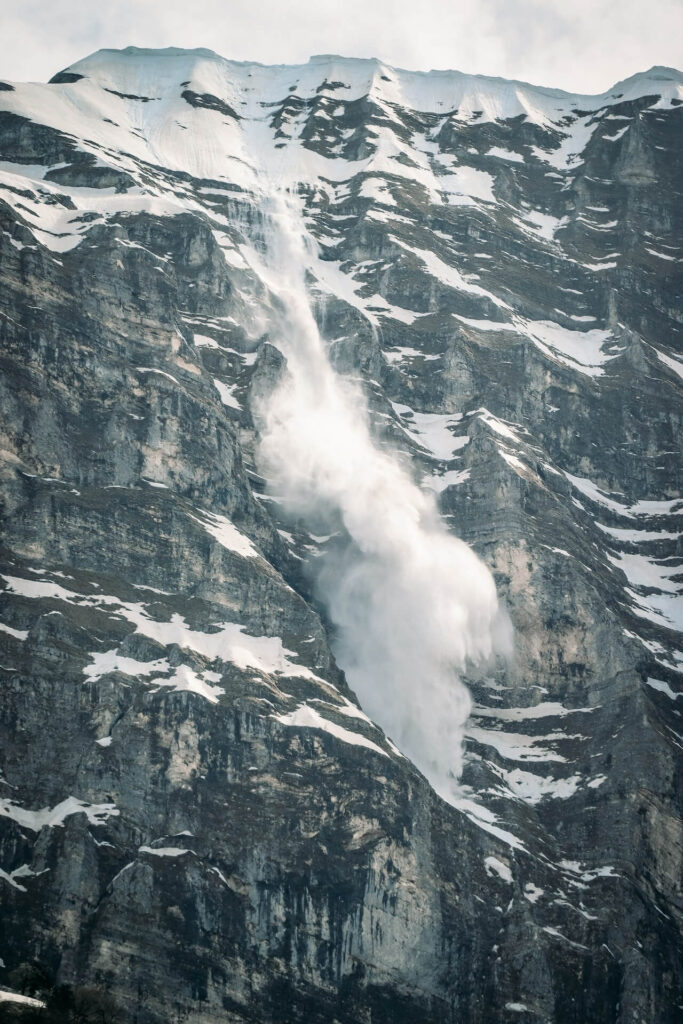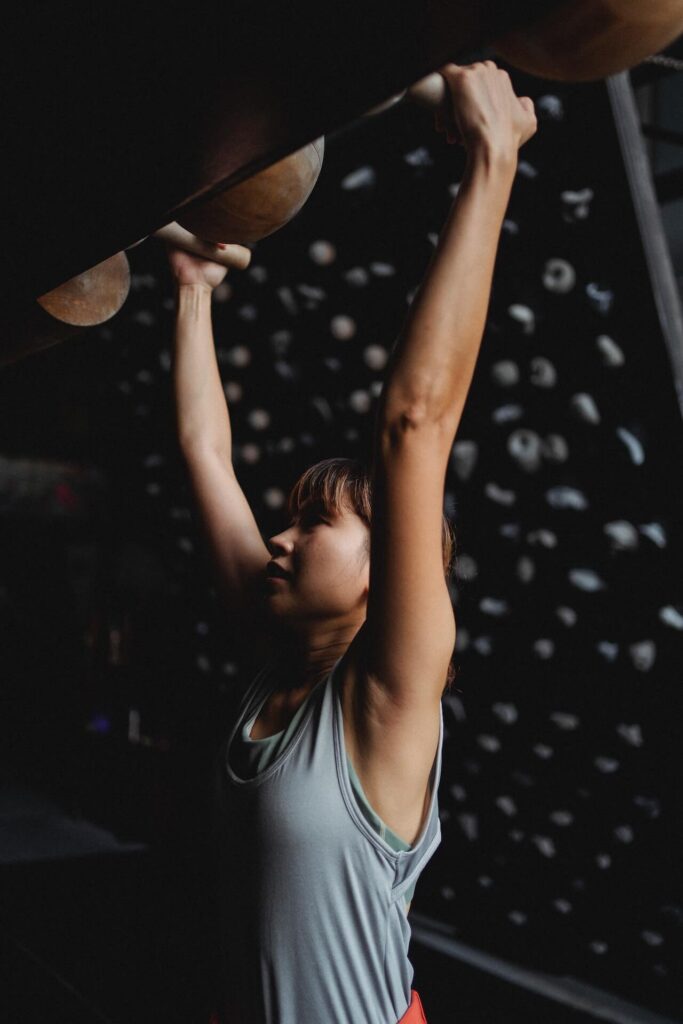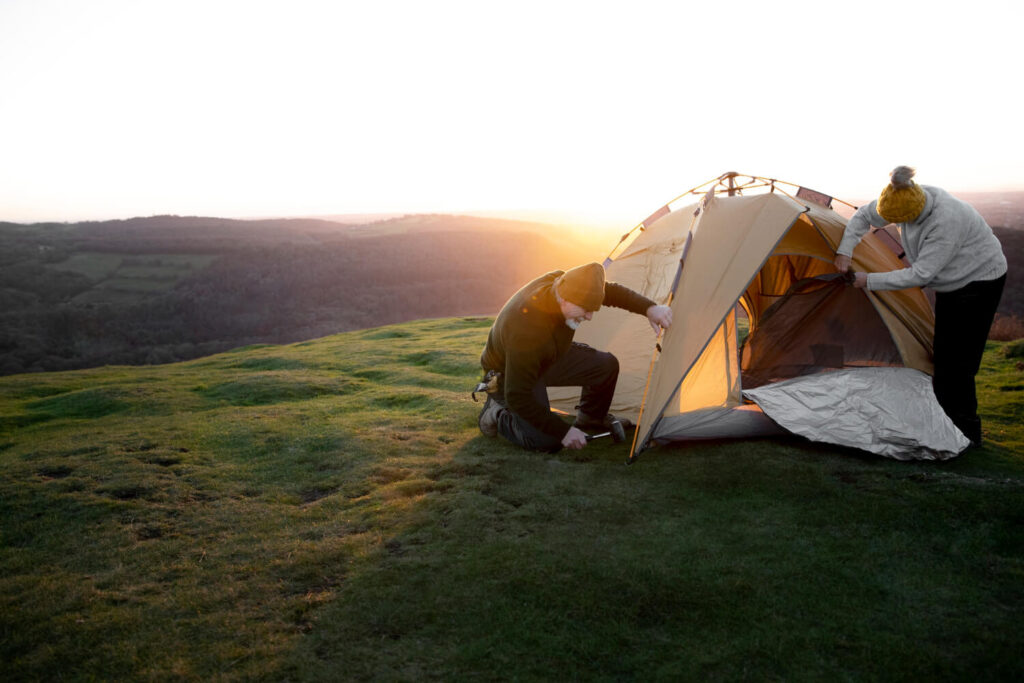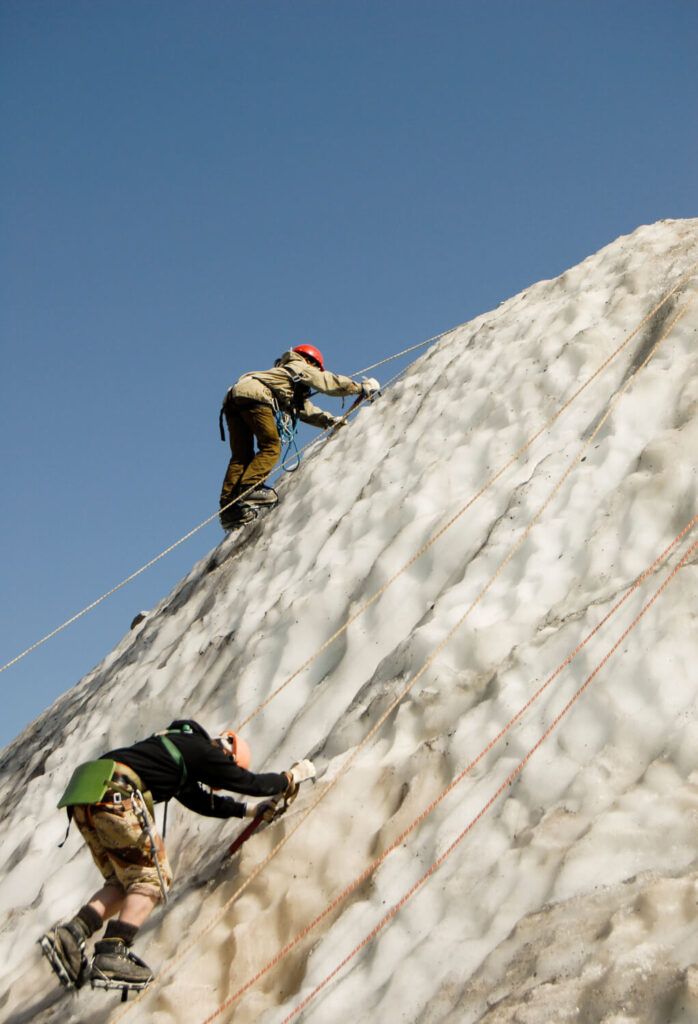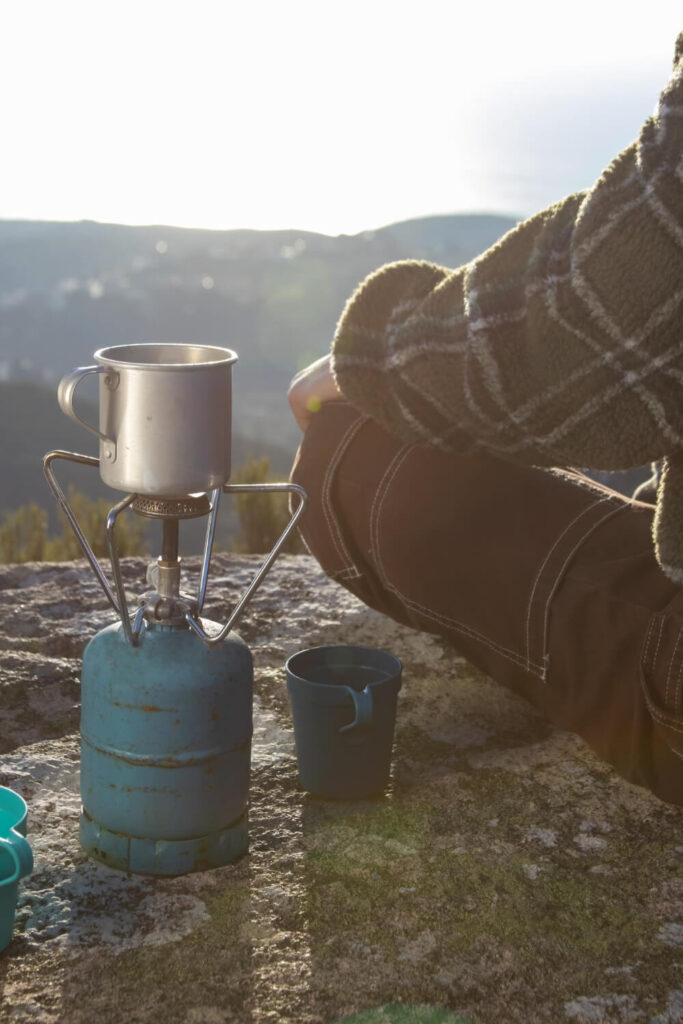Welcome to our comprehensive guide on the best climbing rope for beginners. If you’re just starting your journey into the exciting world of climbing, having the right equipment is crucial to ensure your safety and enjoyment. In this article, we will provide you with detailed insights and recommendations on selecting the perfect climbing rope that meets your needs, preferences, and skill level.
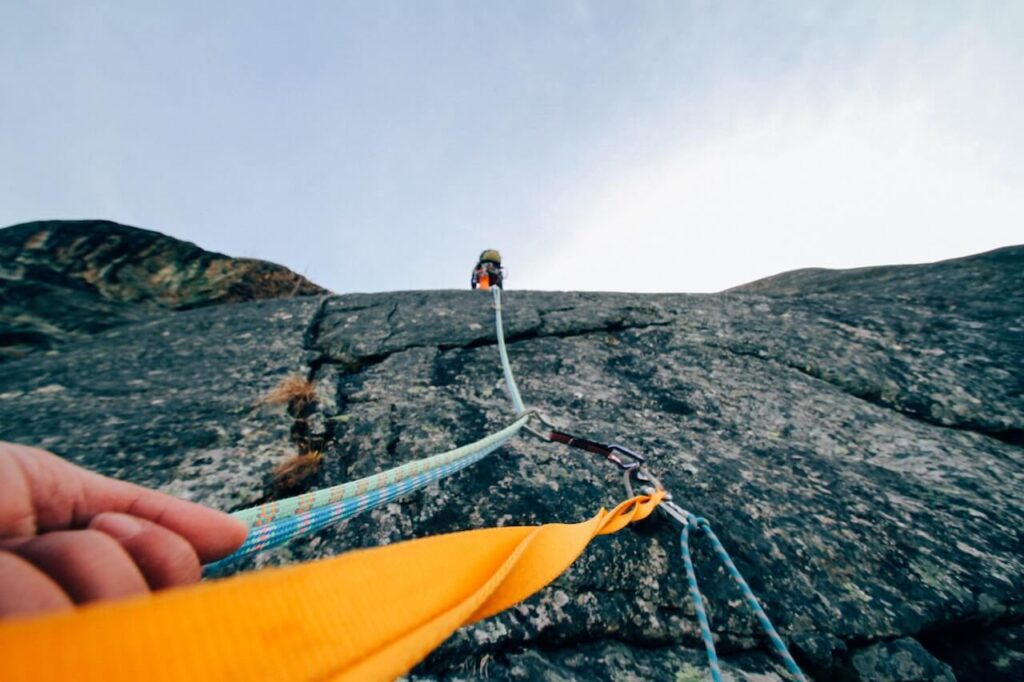
Understanding Climbing Ropes
Climbing ropes are essential tools for climbers, providing a lifeline and protection in case of falls. They are specifically designed to be strong, durable, and capable of withstanding the immense forces generated during climbing. Before we delve into our top recommendations, let’s explore the key factors to consider when choosing a climbing rope.
Rope Length
The length of a climbing rope is an important consideration based on the type of climbing you plan to pursue. For beginners, a standard rope length of 60 to 70 meters is recommended, as it provides versatility and allows for a wide range of climbing routes. But hold on, beginner climbers, we’ve got a recommendation for you: stick with the good ol’ 60-meter ropes. Why? Allow us to explain.
First off, 60-meter ropes are lighter than their longer counterparts. When you’re starting out, whether indoors or outdoors, you want to make your climb as smooth as possible. Why add unnecessary stress to your ascent? Save the extra weight until you’re ready to take on the challenge! Also, they provide the ideal length for you to practice and build up your climbing skills.
Rope Diameter
When it comes to selecting your very first climbing rope, one crucial factor to consider is its diameter. Why is diameter important? Well, let’s dive into the various ways it can influence your climbing experience:
- Durability Matters: The diameter of a rope has a direct impact on its durability. And let’s face it, when you’re venturing into the world of rock climbing, you want a rope that can withstand the elements and keep you safe. In general, thicker ropes offer greater durability, providing you with added protection and peace of mind during your climbs.
- Safety First: As a beginner climber, prioritizing safety is paramount. Choosing a rope with an appropriate diameter plays a crucial role in ensuring your safety. Thicker ropes have higher tensile strength, making them more resistant to wear and tear. This added strength can be a lifesaver, especially during unexpected falls or harsh conditions.
- Finding the Right Fit: If you’re unsure about which rope to select, don’t worry! We’ve got you covered. Our expert team has carefully curated a range of ropes suitable for beginners, taking into account factors such as diameter, durability, and overall performance. So, even if you’re new to climbing, you can rest assured that we have the perfect rope to kickstart your climbing journey.
Rope Type
There are two main types of climbing ropes: dynamic and static. Dynamic ropes are designed to stretch and absorb the impact of falls, ensuring a softer catch and reducing the risk of injury. For beginners, dynamic ropes are highly recommended due to their enhanced safety features. Keep in mind that the level of impact absorption varies depending on the brand and product you choose.
On the other hand, static ropes serve a different purpose in your rope climbing kit. While they should never be used for lead climbing, they still play a valuable role. These ropes are essential for tasks such as lowering injured climbers, hauling heavy loads, and facilitating ascension.
| Rope Types | Description |
| Single Ropes | Single ropes are the most common type of rock climbing ropes. They are designed to be used on their own without the need for any other ropes. These ropes are perfect for beginners and are characterized by a circled number one on each end. Keep in mind that single ropes come in various lengths and diameters, so it’s important to choose one that suits your specific needs. |
| Half Ropes | Half ropes are more advanced ropes used in multi-pitch rock routes. They require the use of two ropes and are generally heavier than single ropes. While not recommended for beginners, they offer advantages such as increased safety and flexibility in certain climbing scenarios. Look for the ½ symbol on each end to identify half ropes. |
| Twin Ropes | Twin ropes are an advanced two-rope system similar to half ropes. They are lighter in weight compared to half ropes but still require the use of two ropes. Twin ropes offer benefits such as reduced drag and ease in route navigation. They are typically used by experienced climbers and provide added security. |
UIAA Certification
When purchasing a climbing rope, ensure that it is UIAA (International Climbing and Mountaineering Federation) certified. This certification guarantees that the rope meets specific safety standards, ensuring reliability and peace of mind during your climbs.
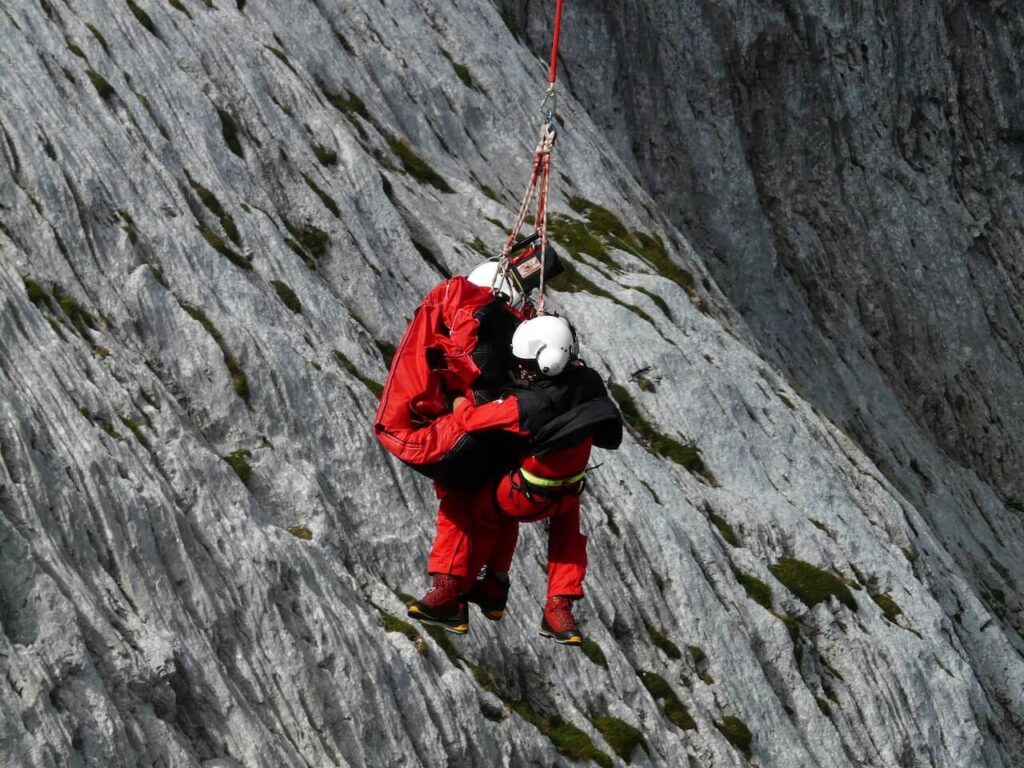
Our Top 5 Best Climbing Ropes for Beginners of 2023
Based on extensive research and expert opinions, we have carefully curated a list of the best climbing ropes for beginners. These ropes excel in terms of quality, durability, and user satisfaction.
- Mammut 9.5 Crag Dry ($290)
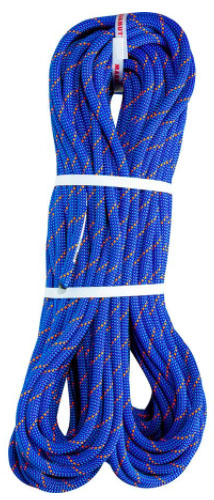
Category: All-around
Diameter: 9.5mm
Weight: 59 g/m
What we like: Great size, performance, and durability.
What we don’t: Doesn’t have the silkiest sheath
At 9.5 millimeters, this rope hits the sweet spot between being too heavy and too flimsy. It strikes a balance that ensures longevity without compromising performance. Thicker ropes may offer durability, but they can feel burdensome during challenging clips high off the ground.
On the other hand, thinner ropes may lack the needed strength and longevity. With a 9.5-millimeter line, you get the best of both worlds—a rope that will last and won’t weigh you down when it matters most.
.
2. Sterling Slim Gym 30m ($120)
Category: Workhorse (gym only)
Diameter: 10.1mm
Weight: 63 g/m
What we like: A no-frills gym rope for $100.
What we don’t: You won’t be using this rope outside.
What sets this rope apart from the others on our list? Well, there are a few notable factors. First and foremost, it’s the length. Most indoor climbing gyms have a maximum height of 15 meters, making a 70-meter rope unnecessary and even costly. This rope understands that and keeps things practical.
Moreover, this rope is designed specifically for the indoor environment, which helps keep the price down.

3. Edelrid Python 10 mm
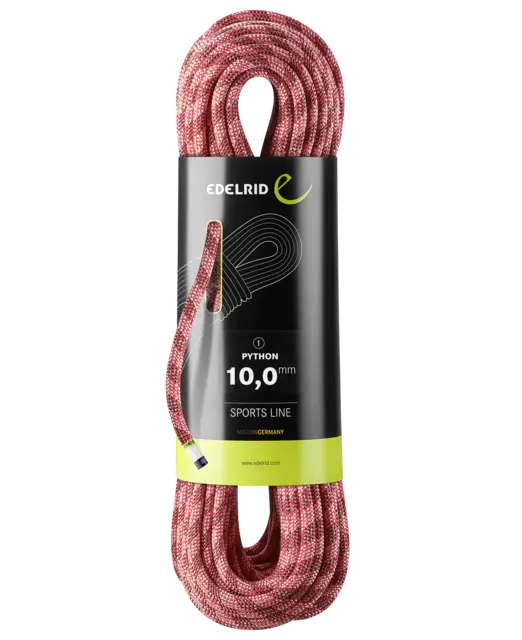
Introducing the Python, our top pick for both price-performance ratio and a great choice for beginners. With its 10 mm diameter, slightly wider than many other ropes, it offers increased friction and excellent support while belaying.
When it comes to durability, the Python shines. Boasting a fall rating of 8, it can handle the challenges of climbing with resilience, making it a reliable workhorse that will stand the test of time.
In our thorough testing, we couldn’t find a rope that outperforms the Python at this price point. It truly excels in delivering outstanding performance without breaking the bank.
Whether you’re a beginner looking for a rope that provides security and ease of use or an experienced climber seeking a cost-effective option without compromising quality, the Python has got you covered.
Experience the winning combination of affordability, performance, and durability with the Python. It’s the rope that ticks all the boxes and exceeds expectations.
4. Petzl Volta 9.2
The Volta rope is a top choice for climbers due to its excellent handling and lightweight design. It features a dry treatment for protection against moisture and dirt.
With its versatile certification as a single, half, or twin rope, it offers flexibility for various climbing scenarios.
The Volta’s 40% sheath-to-core ratio ensures a lightweight yet durable construction. Elevate your climbing experience with the reliable performance of the Volta rope.
5. Edelrid Boa
The Edelrid Boa is a standout climbing rope that excels in all categories, making it the ultimate choice for climbers seeking a balanced and reliable option.
With a diameter of 9.8 mm, the Boa is perfectly suited for sport climbing, striking a harmonious balance between weight and durability. Its 40% sheath percentage ensures exceptional durability and longevity, making it a rope that can withstand the demands of rigorous climbing sessions.
Thanks to its special thermal treatment, the Boa rope exhibits a soft and supple nature, enhancing handling and providing a comfortable grip. This feature adds an extra level of enjoyment to your climbing experience.
Furthermore, the Boa rope offers smooth operation and easy clipping. It runs effortlessly, allowing you to focus on your climbing without being hindered by rope management.

